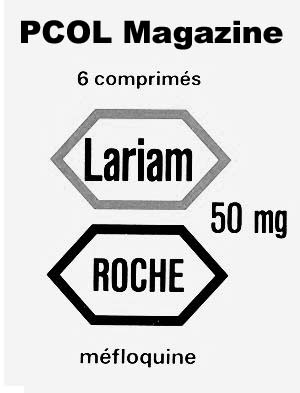
Malaria drug blamed for student's 'suicide'
Malaria drug blamed for student's 'suicide'
By Richard Savill
(Filed: 26/08/2002)
A Cambridge student who became depressed after taking anti-malaria tablets during her gap year teaching in the Far East has been found dead after apparently committing suicide.
Vanessa Brunt, 22, suffered an adverse reaction after taking the Lariam tablets in 1999 and her parents said she had suffered sudden bouts of depression ever since.
Miss Brunt told her father, Michael, an educational consultant, and her French-born mother, Fortunee, that she was going for a walk near her home in Swansea, South Wales, last week.
Police, friends and former classmates began a search after she failed to return. She was found by tracker dogs, unconscious in nearby countryside, 30 hours later. She was taken to Morriston Hospital, Swansea, but died the same day with her family by her bedside.
Mr Brunt said the family was in no doubt that there was a connection between the anti-malaria drug Lariam and their daughter's illness. However, they would not be taking legal action against the manufacturers.
"It is not an issue for us because nothing will bring back our daughter," he said.
He added that during his daughter's illness, the family had drawn comfort from John Forbes Nash Jr, the subject of the Oscar-winning film A Beautiful Mind, starring Russell Crowe.
Mr Brunt, 55, said: "The film means a lot to us. It is very touching and shows a person of outstanding intellect who has suffered mental illness from his late teens."
He said: "Vanessa also had a beautiful mind. She had wonderful potential but sadly that will never now be realised. We are heartbroken. She was a wonderful personable person who was widely adored. She had so much to give."
Miss Brunt, a fluent French speaker, won a place at Peterhouse College, Cambridge, to read an LLB in law. She later hoped to gain a Maitrise in France, the qualification for practising at the French bar.
In between school and university in 1999, she taught English to 16- and 17-year-olds in China. After finishing in the summer of that year, she travelled to South-East Asia and was advised to take anti-malaria tablets.
Mr Brunt said: "She asked us to send her the tablets and we went to our family doctor to get a prescription. She had been taking them for only a few weeks when her illness started."
Miss Brunt returned to Britain and took up her place at Cambridge but was forced to leave after a term.
Mr Brunt said: "She became too ill to continue and the university said they would hold open a place for her when she was well enough to return."
She was treated at hospitals in Paris while staying with relatives of her mother. She returned to her family home in Swansea last Thursday and suffered a sudden relapse.
Mr Brunt recalled reading at the time he dispatched the tablets to Vanessa that a possible side-effect was various types of mental illness.
"We are in no doubt that the tablets caused the illness - Vanessa became physically and mentally ill within weeks of taking them," he said.
The drug, which is prescribed as 250mg tablets to be taken once a week, has been linked to previous suicides in Britain and in America. It is manufactured by Roche and the company's internet website warns that Lariam has been linked to depression.
Side-effects of the drug, which is known to cause mental disturbances, include panic attacks, depression, psychosis and hallucinations.
Lariam carries the warning that the drug must not be used by anyone who has, or has ever suffered from, severe mental complaints or severe mood changes such as depression.
A report in the British Medical Journal said that one in 140 of those taking it abandoned the treatment because of the unpleasant side-effects.
South Wales Police said an inquest into Miss Brunt's death would be opened this week. It is believed she may have taken an overdose of other drugs, and she was also suffering the effects of exposure.
